HortNZ have provided the following synopsis from the 2020 budget:
Yesterday, Finance Minister Grant Robertson unveiled the Government’s 2020 Budget: Rebuilding Together.
As a part of the primary sector, it is heartening to see the Government acknowledge the important role that horticulture will play in New Zealand economic and social recovery.
HortNZ and fruit and vegetable product groups are engaging with senior people in the Ministry for Primary Industries (MPI) to ensure that money available from the Government is spent on research and development projects that transform our industry and help it improve its competitiveness. At the same time, we want to see the Government invest in infrastructure projects like water storage that are important at a regional level and will assist those communities.
People are one of our industry’s major assets. For years, we have suffered from labour and skill shortages. We welcome the Government’s investment in encouraging New Zealanders to take up careers in the primary sector, through promotion and training, and support for employers.
This newsletter puts in one place all the Budget announcements of relevance to growers.
Major initiatives
Access to imported plant breeding material
The Government is investing $38.5 million over the next four years to ensure our sector can access new plant breeding material to help stay ahead of international competition. On top of this, $6.8 million will be invested by MPI on secure greenhouse units for new imported plant varieties and breeding material.
‘This will help the high-performing sector to develop innovative high-value crops and cultivars, while protecting New Zealand from high impact pests,’ said Agriculture Minister, Damien O’Connor.
Helping unemployed New Zealanders into work in the primary sector
The Government is investing $19.3 million over the next four years to help recently unemployed New Zealanders access training and work opportunities in the primary sector.
‘The initiative aims to place at least 10,000 New Zealanders in primary sector jobs by rapidly retraining and absorbing workers displaced from other sectors like hospitality and aviation,’ said Agriculture Minister, Damien O’Connor.
At the same time, the Government is investing $1.6 billion in trades and apprenticeships training.
HortNZ Chief Executive, Mike Chapman said there are some fantastic career opportunities in horticulture. ‘This is thanks to increasing sophistication across plant varieties, growing techniques, harvesting practices, and sales and marketing. Within these areas, there are an infinite variety of roles, from hands on, to technical to management.
‘We’re really keen to see as many kiwis as possible join horticulture as part of New Zealand’s economic and social recovery. At the same time, we will still need skilled workers from the Pacific under the Recognised Seasonal Employer (RSE) scheme, particularly as we will not have the backpacker community to fill gaps.
‘The RSE scheme has played a key role in our industry’s expansion over the past decade, which in turn, has created hundreds of jobs for kiwis. We do not see that situation changing,’ said Mike.
Ensuring New Zealanders have fresh fruit and vegetables
We feel that COVID-19 has shone a light on food security in New Zealand and the importance of ensuring every New Zealand has enough fresh, healthy food to eat. However, HortNZ believes there is still work to do to increase the Government’s understanding of the impact of central and regional government decisions on growers’ ability to grow produce and get it to market, with minimal environmental impact.
Budget 2020 expanded the school lunch programme considerably. By the middle of next year, 200,000 more children will get a free lunch every day, with the programme creating around 2,000 new jobs. The school lunch programme, launched in 2019, currently feeds 8000 children.
Over the next 10 weeks, the Government has funded the Fruit in Schools programme to deliver an extra 100,000 fruit and vegetable boxes. This is part of a scheme to ensure that fruit, vegetables, eggs and other fresh produce does not go to waste due to COVID-19’s disruption of supply chains.
Immediate financial relief for small businesses
The wage support scheme – set to expire in June – has been extended by another eight weeks. From 10 June, firms that can prove their revenue has halved over the previous 30 days compared to the year before will be eligible. The payment remains at $585 per fulltime worker and will be paid to employers in a lump sum. Click here for more details.
The Small Business Cashflow (Loan) Scheme (SBCS) is an interest free loan scheme for small businesses. They must have 50 or fewer full-time-equivalent employees. Inland Revenue will administer the payments and repayments of this scheme. Applications will be open from 12 May 2020 to 12 June 2020 inclusive. Click here for more details.






